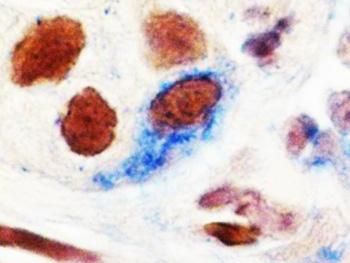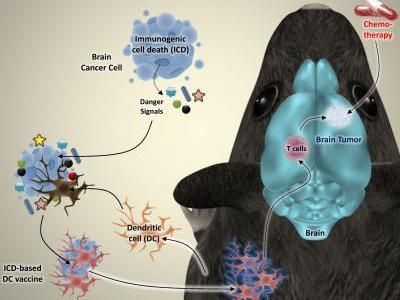Unlocking the body's defenses against cancer
Advertisement
Scientists have discovered a way of allowing healthy cells to take charge of cancerous cells and stop them developing into tumours in what could provide a new approach to treating early-stage cancers. University of Manchester researchers found that a special type of the chemicals known as 'kinase inhibitors' opened up communication channels on the surface of cells that enabled healthy cells to 'talk' to the cancer cells.
"When we added the chemicals to a mixture of healthy and cancerous cells in a flask the diseased cells stopped multiplying and began acting like normal cells again," said Dr Ian Hampson, who carried out the research with wife Dr Lynne Hampson.
"Further tests revealed that the chemicals helped the cancer cells form connections with surrounding healthy cells that allowed these normal cells to take charge of the mechanism by which cancer cells divide and grow out of control."
Dr Hampson says the findings, published in the British Journal of Cancer, are all the more exciting because the chemicals, which were developed with colleagues at the University of Salford, appear to be relatively non-toxic and the positive effect on the cancer cells persists even when the chemicals are withdrawn.
"When the chemicals were added to a culture containing just cancer cells they had little effect," said Dr Hampson, who is based in Manchester's School of Cancer and Imaging Sciences. "It was only when we added the chemicals to a mixture of cancer cells and normal cells – similar to how you would find them in the body – that growth was suppressed.
"Intriguingly, the connections that allowed the healthy cells to communicate with the cancer cells stayed open even when the kinase inhibitors were removed indicating that a potential drug based on these chemicals could be given as a short course of treatment.
"Furthermore, the chemicals are non-poisonous and do not actually kill cells like conventional cancer therapies, such as chemotherapy and radiotherapy, so if we were able to develop a drug it is likely to have far fewer side-effects."
The team say the next stage of their research will be to find out exactly how the chemicals are able to increase the number of connections between cancer and normal cells. Once this is known, it should be possible to produce a drug based on these chemicals that could hopefully be used in humans.


























































